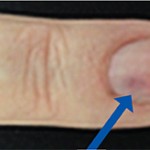SINGAPORE (Reuters)—Australian Open champion Caroline Wozniacki has opened up about her battle with rheumatoid arthritis, saying there have been days this year when she found it hard to get out of bed.
The Dane, who claimed her maiden Grand Slam title in Melbourne this year, crashed out of the WTA Finals in the group stage on Thursday with a 5-7 7-5 6-3 defeat by Elina Svitolina before giving a frank assessment of her health issues.
“I’m very proud of how I have been so positive through it all and just kind of tried to not let that hinder me,” the 28-year-old said of the painful autoimmune condition.
“I didn’t want to talk about it during the year because I don’t want to give anyone the edge, thinking I’m not feeling well. You learn how to just cope after matches.
“Some days you wake up and you can’t get out of bed and you just have to know that’s how it is, but other days you live and you’re fine. You don’t even feel like you have it.”
Wozniacki said she initially did not understand why she was feeling so bad.
“After Wimbledon I wasn’t feeling well. I thought it was just the flu. I was on vacation and I wasn’t feeling good. I was like, you know, ‘It’s fine. I’m going to get over it’,” she said of the early indications of the autoimmune condition.
“I go to Washington. Knees are hurting, my leg is hurting. I’m like, ‘Okay, well, just move on’.
“I play in Montreal, and something still doesn’t feel right. I wake up and I can’t lift my arms over my head. I don’t really know what it is. I go to the doctor and they tell me everything is fine but I know that I’m not fine.
“It turns out that I have an autoimmune disease, which is rheumatoid arthritis, which goes in and attacks your joints.”
Wozniacki, who won the WTA Finals title last year, said she kept the issue private as she learned how to deal with it but was relieved her season was now over so she could focus all of her attention on treating the problem.
“It’s something that now I’m happy that I’m done with the season and you can just kind of control it a little bit more and figure out a plan how to control it better,” she said.



